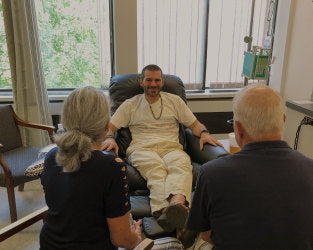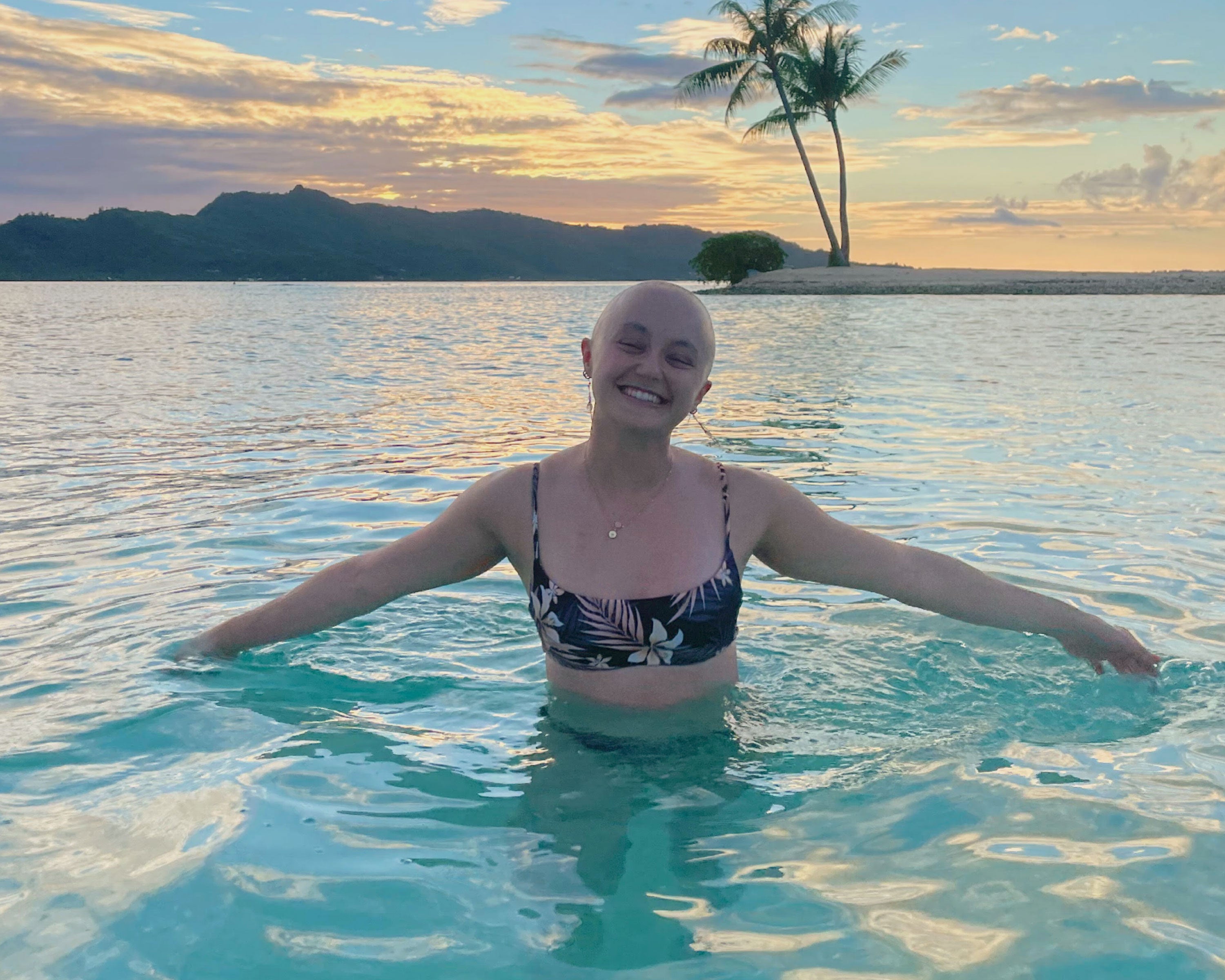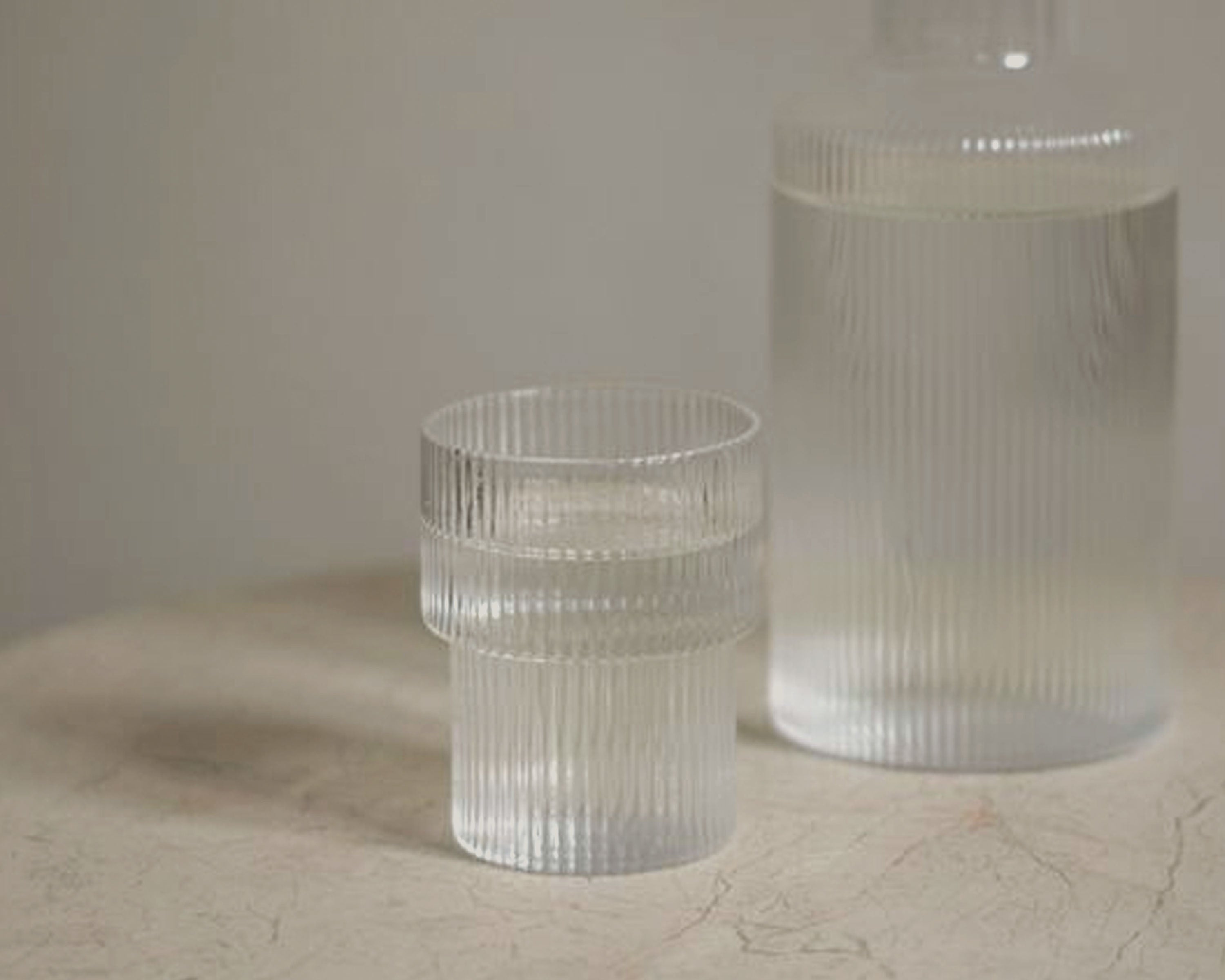Real Talk
Why a Therapist Says Cancer Helped Heal His Relationships — Including the One With Himself
By Nicholas Junes
Share
I was diagnosed with stage one Hodgkin's lymphoma in May of 2019 at 33 years old. I was very lucky — I had to have what I’d consider minimal treatment: four chemotherapy infusions spaced two weeks apart. I mean, don't get me wrong, chemo was horrible, and the side effects were as bad as they say. But my response to treatment was super favorable and everything worked out. I’m now about a year and a half in remission.
Today I have a career as a therapist, and when I think about the impact that cancer had on me, it’s definitely more than any number of years in therapy could have had. For me, cancer was a catalyst for healing my relationships — both with others and myself.
I’m a deeply spiritual person, and going through this experience ultimately increased my trust in God. I felt it was a situation given to me for beneficial reasons and for growth. Old traumas and relationships that were desperate for healing finally got the attention they needed. It’s not an overstatement to say that cancer was one of the best things that's ever happened to me — and here’s why:
I learned how to accept love and support.
I happened to be diagnosed over the summer during graduate school, while I was already living back at home. Cancer transformed my relationship with my mom and dad — and without cancer, I'm not sure I would have gotten there. For one, my mom had a chance to be a very caring and nurturing mother, which was healing for our relationship. It also gave me the opportunity to learn how to accept love and support. Before this point, I didn’t know how to be taken care of.
My mom drove me to every appointment. She helped organize all the paperwork, created folders for everything I had to keep track of, and was there when I needed someone to bounce things off of. It was a shared experience, and if I had to go through it alone, it would have been much, much tougher.
I’ve never liked attention. I tend to only confide in select people. But there wasn’t a single treatment day where I was alone. I dreaded those chemo infusion days — they were some of the worst days of my life, and when people showed up just to say hi, that support was huge. Friends would sit with me to keep me company, or we’d play Battleship to help pass the time. There was a limit to the number of people that could come to treatment, and I didn’t have the energy to create and organize a spreadsheet where people could sign up, but somehow it all worked out.
As a therapist, I’m better able to help patients cope with hardships — and process their own (and loved ones’) mortality.
I was in graduate school moving toward a professional counseling and psychotherapy career when I got cancer. Today, some of the people I work with in my practice either have cancer or their loved ones are going through it. Having faced cancer myself certainly helps me help them — especially with acceptance, which is a big thing that a lot of people struggle with.
When you're diagnosed with a terminal illness, your mortality is on the line, and this can be a hard thing to accept — not just for the patient, but for the entire family. In my case, I had gone to a four-year seminary and was always interested in philosophy and theology. So, when I was diagnosed, death wasn’t a new topic. Although I very much wanted to live, because of my faith you could say I was already living my life in a way that's been preparing me for death. But for many, death is just this weird subject that no one wants to think about or talk about. I’ve even been asked by clients to lead family sessions where I help the whole family process and talk about the possibility of their loved one dying.
Cancer helped me stop the stress cycle and be kinder to myself.
Prior to my diagnosis, I was always stressing — I was constantly worried or anxious about something. Our American culture and society is so built around rushing around, being productive, getting through the do-do list. There's no time to sit down or rest because there's so much to take care of. But cancer forced me to look at my toxic mental thought patterns and replace them with healthier ones. It brought me to a place where I said, “I don't have any responsibilities right now other than to rest. And I'm not going to stress about anything because stress is the preferred environment for cancer to thrive.” I knew that stressed and anxious thinking wasn’t going to benefit me at all.
I turned to a lot of books about cancer and remission and health. And in that I noticed that a lot of people talk about how they “beat” cancer, or how they’re “fighting” cancer. I didn’t have a fight mindset. I was focused on the healing and trusting the process. I was being really kind with myself — just gentle and peaceful. Visualization exercises helped me a lot. I visualized having a good relationship with the chemo; I visualized the chemo working and killing the cancer cells and doing what it was supposed to do. (And it did.)
This article is for informational purposes only and is not a substitute for medical advice, diagnosis, or treatment. Please keep in mind every individual’s situation is different, and you should not take any actions concerning your body and well-being before consulting with a healthcare professional.
Let your loved ones know what you actually need
Easily add items from the Alula shop to your registry, and share it with friends and family who ask.



